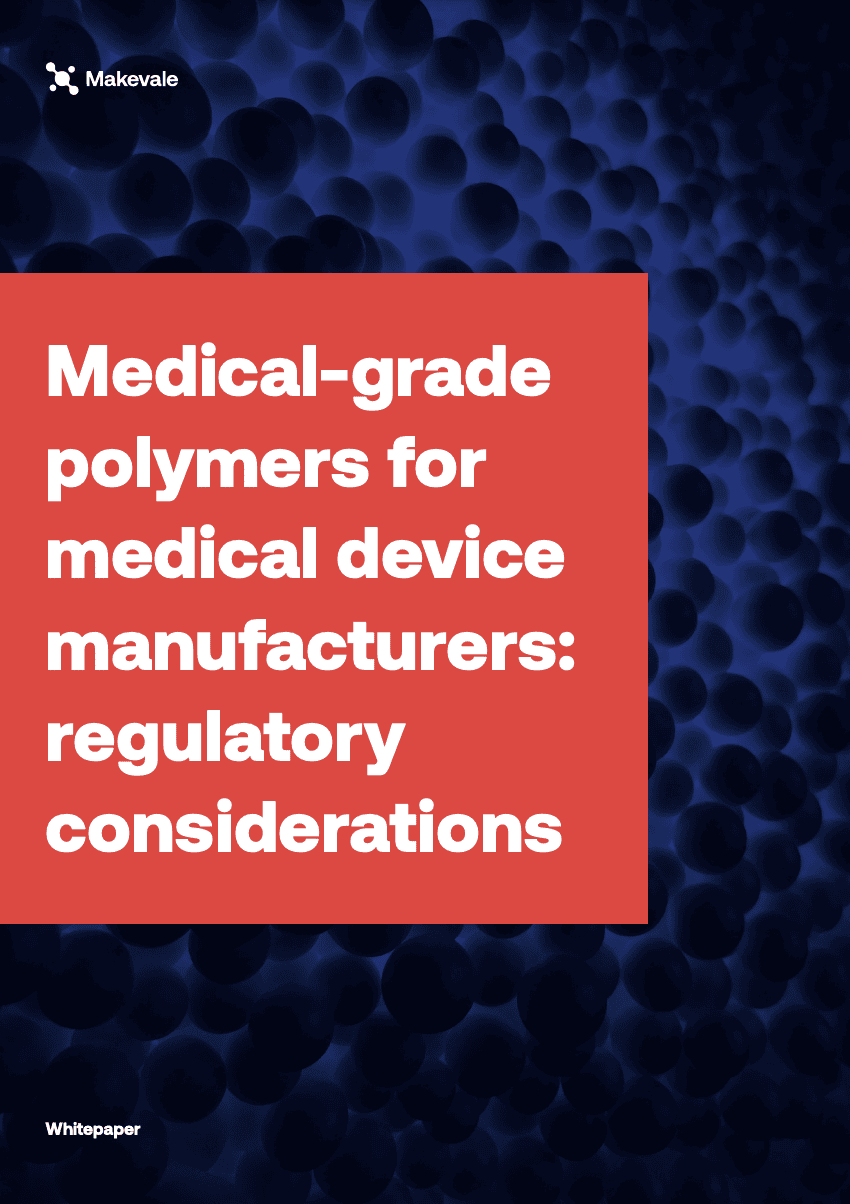
Poly (methyl methacrylate) (PMMA) is a versatile acrylic plastic. Tough, rigid and transparent, it combines chemical stability with low toxicity for a wide range of industrial and consumer applications. PMMA microbeads are at the heart of many important products, from dental protheses to bone cement, implants, contact lenses and cosmetics.
Despite their versatility, PMMA microbeads are by no means a standard product. Small changes in polymerisation processes can lead to a range of properties and small variations in bead characteristics can have a big impact on final product manufacturing. This versatility, combined with excellent recycling potential, means that PMMA is an important element of many niche and specialised products and it is fast becoming the basis for many product innovations, especially in the healthcare and biomechanical space. So, how can small-batch PMMA microbead production techniques help support niche products and drive innovation?
Controlling polymerisation for ideal characteristics
PMMA microbeads are produced by exposing methyl methacrylate (MMA) to an initiator, where free radicals are released that drive suspension polymerisation. This process produces smooth polymer spheres that resemble a powder. Many factors and chemicals are controlled to produce particular characteristics, with even subtle changes in molecular weight, size or surface chemistry producing a ‘butterfly effect’ of very different qualities in final manufactured products.
This versatility can be harnessed to drive product innovation, but it can also lead to surprising, undesirable traits if the process isn’t regulated.
Using the latest suspension polymerisation technology, Makevale closely controls all production parameters including:
- The temperature reaction profile
- The phase ratio
- Moisture content
- Agitator actions such as speed, shape and size
- Additive and inhibitor chemistry
- The Gibbs free energy ratio
These regulations lead to precise and narrow PMMA microbead profiles including consistent molecular weight, molecule size and surface chemistry characteristics. In turn, these profiles determine the handling characteristics, flexural modulus, fatigue resistance, colour, strength, bead morphology and interaction with additives as PMMA microbeads move through manufacturing processes.
These fine-tuned characteristics make PMMA microbeads an excellent choice for niche and specialised products, as well as new product innovation; however, many PMMA bead manufacturers will only supply large volumes. At Makevale, we think differently, realising the huge potential that small-batch runs offer our clients. Our chemists welcome the chance to be involved in very specific PMMA microbead requirements and together, we work with our client to reach new standards and reach new frontiers in PMMA bead development.

Starting small for tight specifications
Whether you're manufacturing a niche or bespoke product or innovating for a new one, specification is critical.
In research and development, small supplies of each component are needed to set limits, stress test parameters and design the optimal manufacturing conditions and outcomes. Many PMMA manufacturers work within set boundaries or only supply bulk quantities, often in the region of 50 metric tons. With our flexible approach, we are happy to provide small batch quantities, enabling you to test, adapt and retest until you find your optimum solutions. We set aside capacity specifically for small batch runs and our chemists are working on the frontier of PMMA microbead development, pushing the boundaries to discover new ways to adjust bead characteristics and reveal new applications. For this reason, we have clients who come to us for very small batch runs for niche products.
Having worked with some of the largest manufacturers in the healthcare and cosmetics industries, we have a wealth of experience in creating exact PMMA bead specifications, together with rigorous testing protocols, to create the optimal end product. Working with client teams, we foster an open and honest dialogue, understanding exactly how the product will be manufactured and used, so as to design the optimal PMMA microbead chemistry. Simple things, such as the storage temperature of the powder, the transportation conditions or the mix or curing times can be used to adjust the PMMA characteristics so they behave as expected in the conditions in which they’ll be used. This is an important step in controlling quality in end products.
End product diagnosis can be a great place to start for upgrading or modifying an existing product. Features in the final product point to particular processing techniques or PMMA microbead characteristics. By adjusting one small element, huge improvements can be made in the final product.
On the path to approval
PMMA is already being used at the cutting edge of medical and biomechanical design. Research is exploring the use of PMMA in drug delivery systems and extending its use in maxillofacial surgery, implants and novel bone cement compounds. As these new products make their way to market, PMMA production techniques and standardisation will be important considerations for regulatory approval.
Makevale is an FDA-registered manufacturer and support many clients to produce regulatory submissions for approval. We provide evidence for PMMA characteristics and reproducibility and we are actively working on several projects to combine nanoparticles with antimicrobial agents to further increase the longevity and viability of many bone cement, dental prostheses and implantation devices.
Makevale has more than 40 years of experience in developing high-performance polymers across multiple industries, working with clients to create the perfect formulas to meet their manufacturing challenges. For further information on our dental liquids and acrylic powders, contact our team for free, no-obligation advice.
